
The Ultimate Victory
“We used to be friends in Europe, a long time ago, before the war. He was such a wonderful person; it’s not surprising that he’d have a grandson like you.”

This story is fiction, based on a true story told to me by a survivor.
Forty-five years is an awfully long time. And yet I can still remember the details of that Shabbos morning as though it happened yesterday. The memory—and the pain — have remained fresh despite more than four decades that have gone by since then. But yesterday something happened that made me realize again just how right I had been to remain silent.
How can I begin? Perhaps I’ll start by telling you a little bit about myself. I was raised in a small shtetl in Poland; actually, it was a suburb of Warsaw. I was born in 1918, at the very end of the First World War. Everyone was grateful that hostilities had finally ended, and everyone was looking forward to a future of peace and prosperity. Little did we realize then what the future held in store for us.
When I turned three, my parents brought me to the local cheder to begin my formal Torah studies. My father, may Hashem avenge his blood, carried me through the streets wrapped tightly in his tallis, like a precious sefer Torah. I can still remember the delicious cookies, shaped like the letters of the alef beis, that my mother, may Hashem avenge her blood, baked in honor of the occasion. All my older brothers and sisters, aunts and uncles fussed over me when I returned home that afternoon. After all, I was finally grown up enough to begin learning the heilige Torah! We were a large, warm chassidic family, and my parents made sure to instill within all of us children a burning love for Torah and mitzvos.
I was brought to the chuppah just a few days after my eighteenth birthday, and within the year my wife, may Hashem avenge her blood, and I were the proud parents of the most beautiful baby girl I had ever seen. Within the next three years, we were blessed with two more precious children. I worked, together with my father and four older brothers in the family business, while my wife stayed home and took care of our family. Thank God, we were fairly well-off, at least by local standards. I had everything a man could possibly desire in this world: the most wonderful wife, adorable, healthy children and a supportive extended family.
Although I spent most of my day at work, I awoke every morning before dawn and devoted several hours to Torah study before beginning my job. That was the custom in our community. What today might be considered extraordinary was then looked upon as the norm. Of course we were not spared the day-to-day problems that everyone has to face — life is never easy—but all in all, we were satisfied with our lot and looking forward to a rosy future.
All of this changed, of course, on September 1, 1939, when the Nazis attacked Poland. My uncle and aunt, together with their eight children were killed during the first weeks of the war when a bomb fell directly onto their apartment building. At the time, we thought that the worst that could possibly happen had occurred and that as soon as the bombing would cease, we would be able to continue with our lives, albeit with some changes due to the Nazi occupation.
Little did we realize at the time that my uncle and his family were the lucky ones. They, at least, merited a grave.
It seemed as though every day the Nazis would come up with some new ordinance designed to degrade us and make our lives even more miserable than before, although each time we couldn’t imagine how that could be possible. The ghettoes, the forced labor, the camps…yes, I went through it all. My beloved wife and precious children were turned into ash, together with almost all the members of my family. Only two cousins survived. One is living in Hertzliya, Israel, and the other in Omaha, Nebraska. Neither are frum today. It is only I who continues the golden chain of my family’s Torah legacy.
With the liberation I realized that somehow or other I would have to put everything behind me and start my life anew. If I lived in the past, then I would never be able to build a future. And I wanted to get back at Hitler. I wanted to rebuild, to prove to him as well as to all of those many nations who tried to destroy us that the Jewish nation is indestructible. Am Yisrael chai! The Jewish nation will survive, no matter what. I felt that every Jewish child was a smack in Hitler’s face, proof of our survival. And believe me, I wanted to “smack” Hitler as much as I could.
So I somehow shut the door on that beautiful and painful chapter of my life while cautiously opening another. When my father’s uncle, who lived in New York, contacted me and offered to bring me to the United States, I grabbed the opportunity. It wasn’t easy to arrive as a destitute refugee in a strange country, but I was not the only one. We were a group of survivors — in the broad sense of the word — and we stuck together. We had learned to manage under even more difficult conditions.
I began slowly to rebuild my life; I found a decent job, remarried and started a family. I put everything I had into carving out a new life for myself. Thank God, I was successful, and today I am reaping the fruits of those many years of hard labor. My children, grandchildren and (would you believe it?) great-grandchildren, may they all live and be well, are providing me with plenty of nachas.
But forty-five years ago, I was still struggling —juggling — and just beginning to reap the fruits of my labor. I refused to allow myself to think back to that early chapter of my life, in another world, before the war. The pain was unbearable. I was still young and forced myself to look forward toward the future.
As part of my job I often had to travel to various cities throughout the United States, and sometimes I even flew to Canada. I usually managed to arrange my calendar such that I would be home for Shabbos, although occasionally that proved impossible. When I had to be away, I usually spent the day of rest with a local Orthodox family. I must say, I met a lot of wonderful people that way.
That particular Shabbos, I was in a city in the Midwest that boasted a small but very cohesive Orthodox community. I arranged to spend Shabbos with the local rabbi and his family.
Even today, so many years later, it is difficult for me to talk about what I went through that Shabbos. It is like opening a Pandora’s Box of agonizing memories, which are still painful to face.
The name “Yitzchak ben Eliezer Halevi” meant absolutely nothing to me. But the moment I saw the person who answered to that name walk up toward the bimah, my blood froze. Despite the fact that fifteen years had passed since I had last seen that face, I was able to recognize it immediately. The features were the same, but the eyes were somehow different. When I had last seen Yitzchak Segal, his eyes had been hard, filled with anger and cruelty. Now they were soft and full of compassion.
Almost immediately I found myself thrown back in time, to the days when I was interned in the Warsaw ghetto.
In the ghetto, Yitzchak Segal had been a member of the hated Judenrat police force, a cruel puppet of the Nazi oppressors. One of his jobs was to deliver a certain quota of victims to be sent off to God-knows-where. Although at the time we had no idea where our fellow Jews were being shipped to, we realized that wherever these people were being sent, it was a fate that we must try to resist at all costs. We had heard rumors of Treblinka and Sobibor but were still unable to fathom that that there could be any truth to these rumors.
I myself was lucky. Due to my family’s business connections, I was able to land myself a job in a large factory that manufactured heavy rubber rain boots for the German armed forces. As a result, I was considered indispensable to the German war effort. As a result, my family was entitled to special passes allowing them to live in the ghetto without having to worry about being plucked off the streets during an aktion. These passes gave us an illusion of security.
But as with all illusions, mine were broken into a thousand pieces – together with my heart — during one of the most brutal aktions that took place in the ghetto. When the police stormed into our apartment I waved my family’s pass in front of their eyes, and we were spared. For the moment, at least, we were safe.
But a few minutes later, Yitzchak Segal raced back into our home. His eyes brimmed with undisguised cruelty as he grabbed my wife, together with my three precious children, and ordered them to join the others marching toward the train station. I begged to be allowed to go together with them, but Yitzchak Segal responded with a sarcastic laugh and told me that I was considered indispensable. The Germans needed me; I could not accompany my family.
Later on, I learned that Yitzchak’s wife and children were among the original group slated for deportation. Playing God, he had sent my family to be burned in the gas chambers in place of his own wife and children. I now realize that despite the coveted working pass it is unlikely that my family would have survived the Holocaust I would have had a few more weeks, or even months, to spend with them. But that time was cruelly wrenched from me.
Every time I saw that animal Yitzchak strut through the ghetto streets, a pawn in the hands of his Nazi overseers, I was overwhelmed with disgust and an intense, almost irresistible desire for revenge. Who gave him the right to destroy my family to save his own? How could he harm his own brothers? As strange as it may sound, I could understand the Nazis’ behavior. They were goyim, sons of Esav. Hatred for the Jews was a part of their heritage, ingrained in their psyche. But Yitzchak? Yitzchak was one of ours, a child of our holy fore-fathers Avraham, Yitzchak and Yaakov. How could he have sold himself to the devil?
Despite all that I suffered during the years that I spent incarcerated in the ghettoes and camps, the memory of Yitzchak grabbing my family and sending them off to their death was the most painful. I viewed Yitzchak as a traitor to his people, and to me he symbolized the epitome of evil. Other memories faded with time, but although that memory was kept securely locked away, it remained crystal-clear.
I had no doubt that Yitzchak ben Eliezer Halevi and Yitzchak Segal were one and the same.
Thank God, I have always had a tremendous ability to control myself, and no one in shul was aware of the emotional turmoil I was experiencing. I wanted to stand up and declare to everyone there that this man was really an imposter — that he was only pretending to be religious. I wanted to let them know that he was nothing more than an animal, a puppet in the hand of the devil. But I held myself back. After all, I was just a visitor in this town. No one really knew me, and it was obvious that Yitzchak was a well-respected member of his community. I bit my tongue.
That night, I was barely able to close my eyes. A securely sealed section of my brain had been torn opened, and I found myself flooded with memories that I had managed to suppress for over fifteen years. With each recollection, the desire for revenge became even stronger. Yitzchak had destroyed everything that I once held dear.
The next morning I was determined to inform the community’s rabbi know that he was harboring a murderer. A traitor was living in their midst. I was determined that justice be done and that Yitzchak Segal’s true face be revealed to the world.
I knew that I had no time to waste. I had to catch a plane late that afternoon, and there were business meetings scheduled throughout the morning. I made sure to catch the early minyan so that I would have time to speak with the Rabbi.
But the moment I entered the shul, I noticed Yitzchak standing slightly off to the side, davening with intense concentration. There was something about the way he slowly formed the words, as though counting precious diamonds, which caused me to stop in my tracks.
It suddenly dawned on me that this was no masquerade. Yitzchak Segal really was a God-fearing Jew. He was not the same Yitzchak that I had encountered in the ghetto.
Well, to make a long story short, I left town and never returned. I never said a word to anyone about Yitzchak’s past. Although I had the power to take revenge and destroy his reputation, I kept quiet. As strange as it may sound, somehow I felt that by doing so I was actually honoring the memory of my dead family. You might say that it was a different type of revenge.
Yesterday, however, something happened that made me realize once again just how right that decision had been.
As I said before, thank God, with the passing years I have built a new life for myself. Between the children, the grandchildren and the great-grandchildren, bli ayin hara, I have managed to “smack” Hitler close to one hundred time. And what can I tell you? Those children, G-d bless them, are the greatest source of pleasure in my life. Each one of them is so precious, so beautiful; true Yiddishe kinder. Just thinking about them brings tears to my eyes.
My oldest grandson, his wife and one-year-old son were our guests last Shabbos. My wife and I are not as young as we used to be. In fact we’ll be ninety in just another four or five years (I’ve lost count). But, thank God, we’ve been blessed with incredible good health, and although it has not been easy, we’ve managed to maintain our independence.
It happened just after havdalah. One moment little Chaim’ke (named after my late uncle, the one who was killed by the bomb at the beginning of the war) was sitting in his mother’s lap gurgling happily, and the next moment he had turned blue and was trying desperately to catch his breath. Both my wife and I stood frozen in shock. My grandson quickly turned the baby upside down and started banging him between the shoulders, but the child did not start breathing. His wife rushed to the telephone and called Hatzalah, the Jewish emergency medical service.
They arrived in less than a minute. Angels — that’s the only way I can describe the two men who raced into our home. No, they weren’t dressed in white, nor did they have wings sprouting from their shoulders, but…they were truly messengers of God, and they knew exactly what to do. Within seconds little Chaim’ke was breathing on his own again.
“Here, take this,” said one of the men, handing my grandson’s wife a small silver-colored button. “He must have pulled it off his shirt and tried to swallow it. Looks like you have a hungry little boy there. But before you feed him, I’d like to take him to the emergency room to have him checked. I’m sure everything is okay, but it’s better to be safe than sorry.”
The next morning, my grandson phoned to let us know that Chaim’ke was all right, thank God. Of course, he asked how I was feeling after all that excitement and whether I had managed to sleep that night. I lied and told him that both Bubby and I were feeling great and had slept like babies. (Well, that really wasn’t such a lie. How much does a baby sleep at night, anyway?) After all, those youngsters have enough on their heads without having to worry about whether or not their grandparents had a good night’s sleep.
Both my wife and I felt a tremendous sense of gratitude to the men who had saved our great-grandson’s life, and we wanted to give them something as a token of our appreciation. Although it took quite a few phone calls, I was finally able to find out who they were. They both studied in a nearby yeshiva. I prepared two envelopes and ordered a car service to take me to the yeshiva.
I have always found myself touched to the core when I enter a beis medrash and see dozens of young men studying Torah. It leaves a honey-sweet taste in my mouth, like the taste of those alef-beis cookies that my mother, may Hashem avenge her blood, baked for me so many years ago. It took a few moments before I was finally able to locate Aharon Davis and Shmuel Segal among the undulating waves of black suits and white shirts. They were surprised to see me, and at first did not want to accept the envelopes. But I insisted, and eventually they acquiesced.
Something about Shmuel caught my eye. I knew that I had seen that face before. It took me a few minutes before I was able to place it.
“You’re originally from New York?” I asked, just to be sure.
“Well, actually not. Both of my parents are from a small city in the Midwest, but we moved here when I was very young.”
“Is your grandfather’s name Yitzchak?” I asked, positive of the answer.
“Yes,” he replied, puzzled. “But how did you know?”
I paused, trying to pull myself together. I hoped my voice would not crack. “You’re the spitting image of your grandfather as a young man,” I smiled. “We used to be friends in Europe, a long time ago, before the war. He was such a wonderful person; it’s not surprising that he’d have a grandson like you.”
I left it at that. Another smack in Hitler’s face.


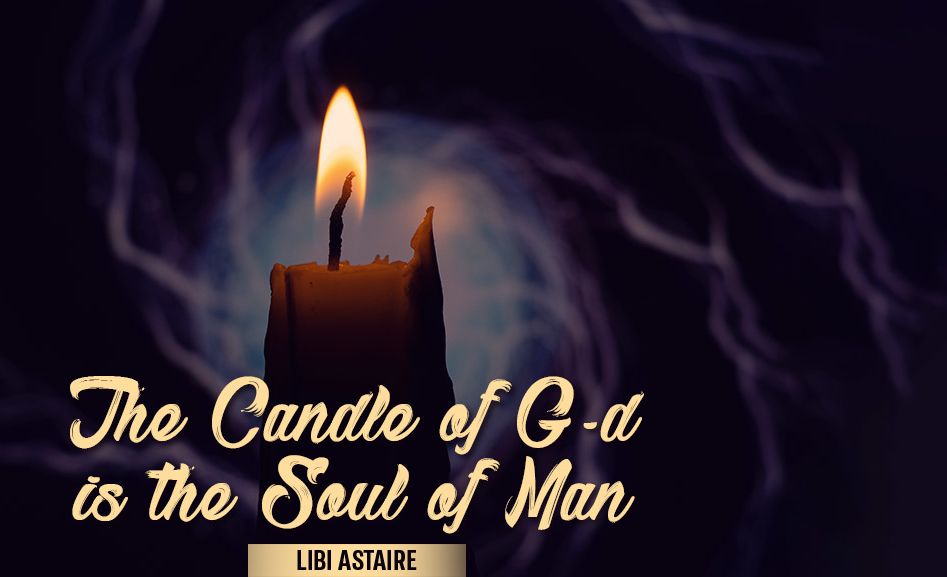
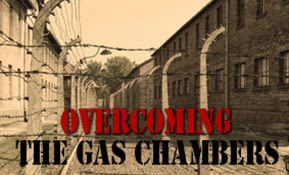
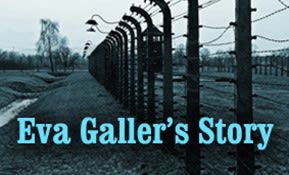
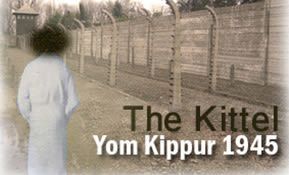
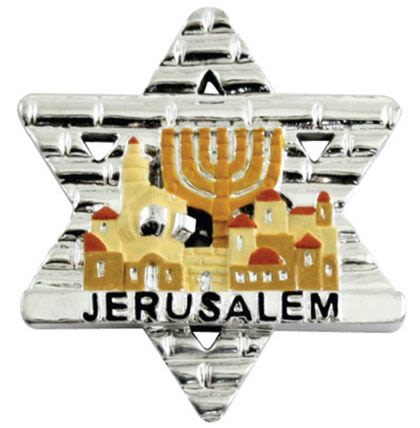
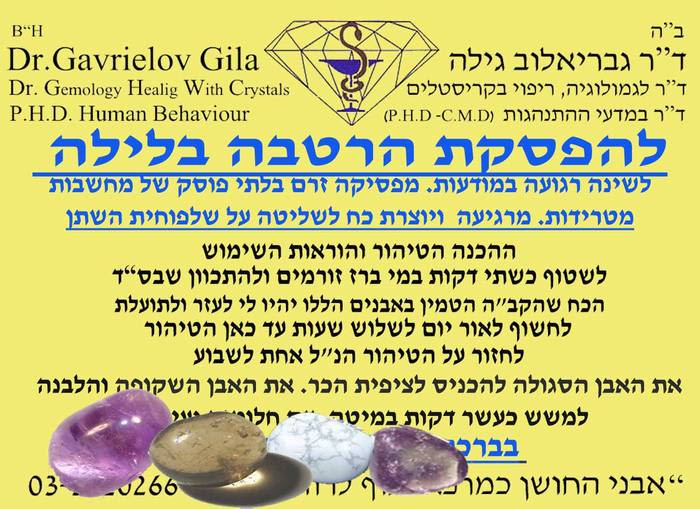
Tell us what you think!
Thank you for your comment!
It will be published after approval by the Editor.